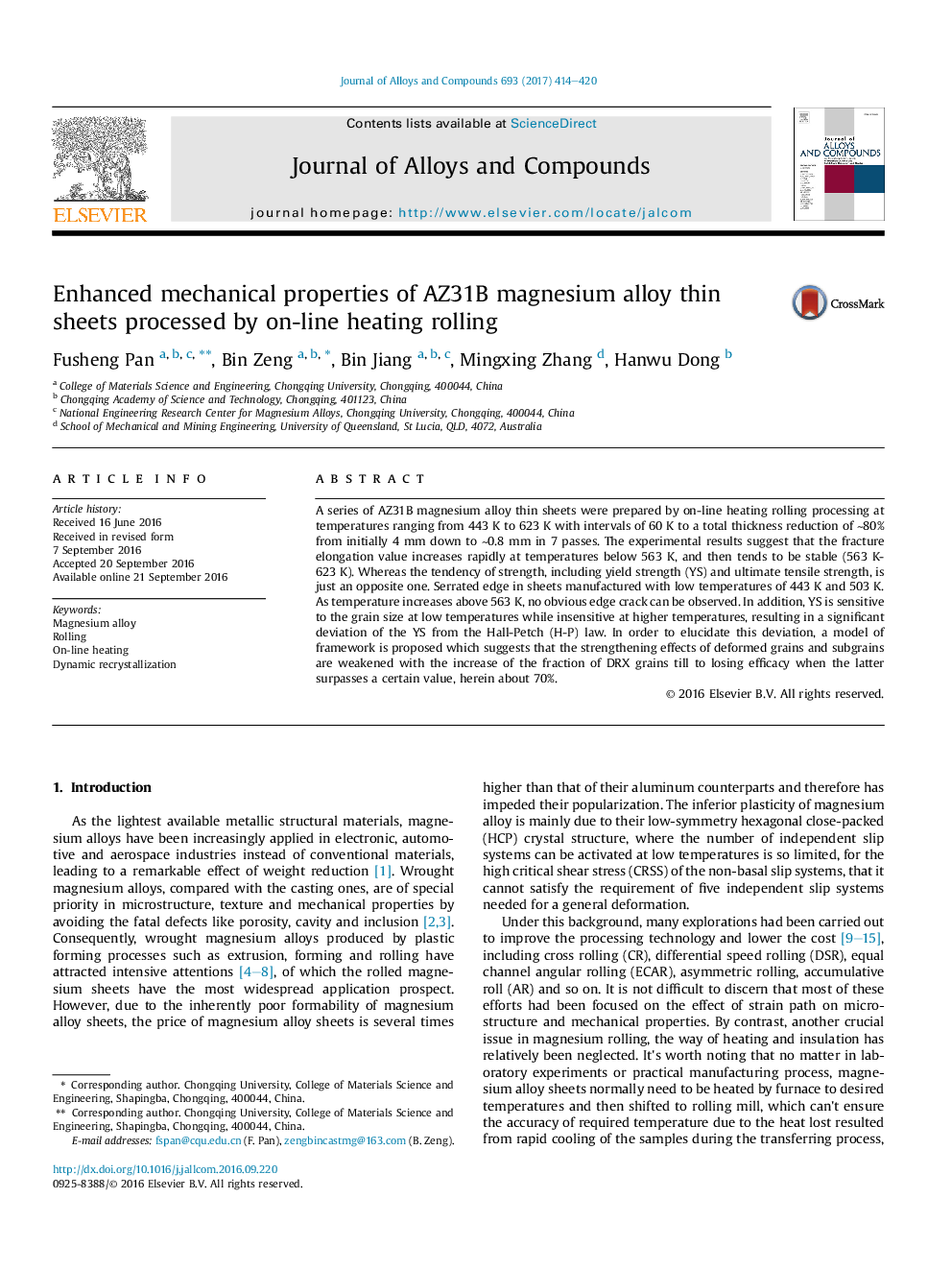| Article ID | Journal | Published Year | Pages | File Type |
|---|---|---|---|---|
| 5461024 | Journal of Alloys and Compounds | 2017 | 7 Pages |
Abstract
A series of AZ31B magnesium alloy thin sheets were prepared by on-line heating rolling processing at temperatures ranging from 443Â K to 623Â K with intervals of 60Â K to a total thickness reduction of â¼80% from initially 4Â mm down to â¼0.8Â mm in 7 passes. The experimental results suggest that the fracture elongation value increases rapidly at temperatures below 563Â K, and then tends to be stable (563Â K-623Â K). Whereas the tendency of strength, including yield strength (YS) and ultimate tensile strength, is just an opposite one. Serrated edge in sheets manufactured with low temperatures of 443Â K and 503Â K. As temperature increases above 563Â K, no obvious edge crack can be observed. In addition, YS is sensitive to the grain size at low temperatures while insensitive at higher temperatures, resulting in a significant deviation of the YS from the Hall-Petch (H-P) law. In order to elucidate this deviation, a model of framework is proposed which suggests that the strengthening effects of deformed grains and subgrains are weakened with the increase of the fraction of DRX grains till to losing efficacy when the latter surpasses a certain value, herein about 70%.
Related Topics
Physical Sciences and Engineering
Materials Science
Metals and Alloys
Authors
Fusheng Pan, Bin Zeng, Bin Jiang, Mingxing Zhang, Hanwu Dong,
